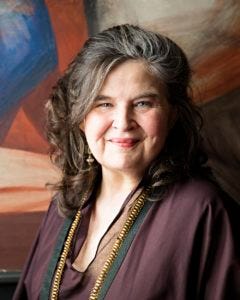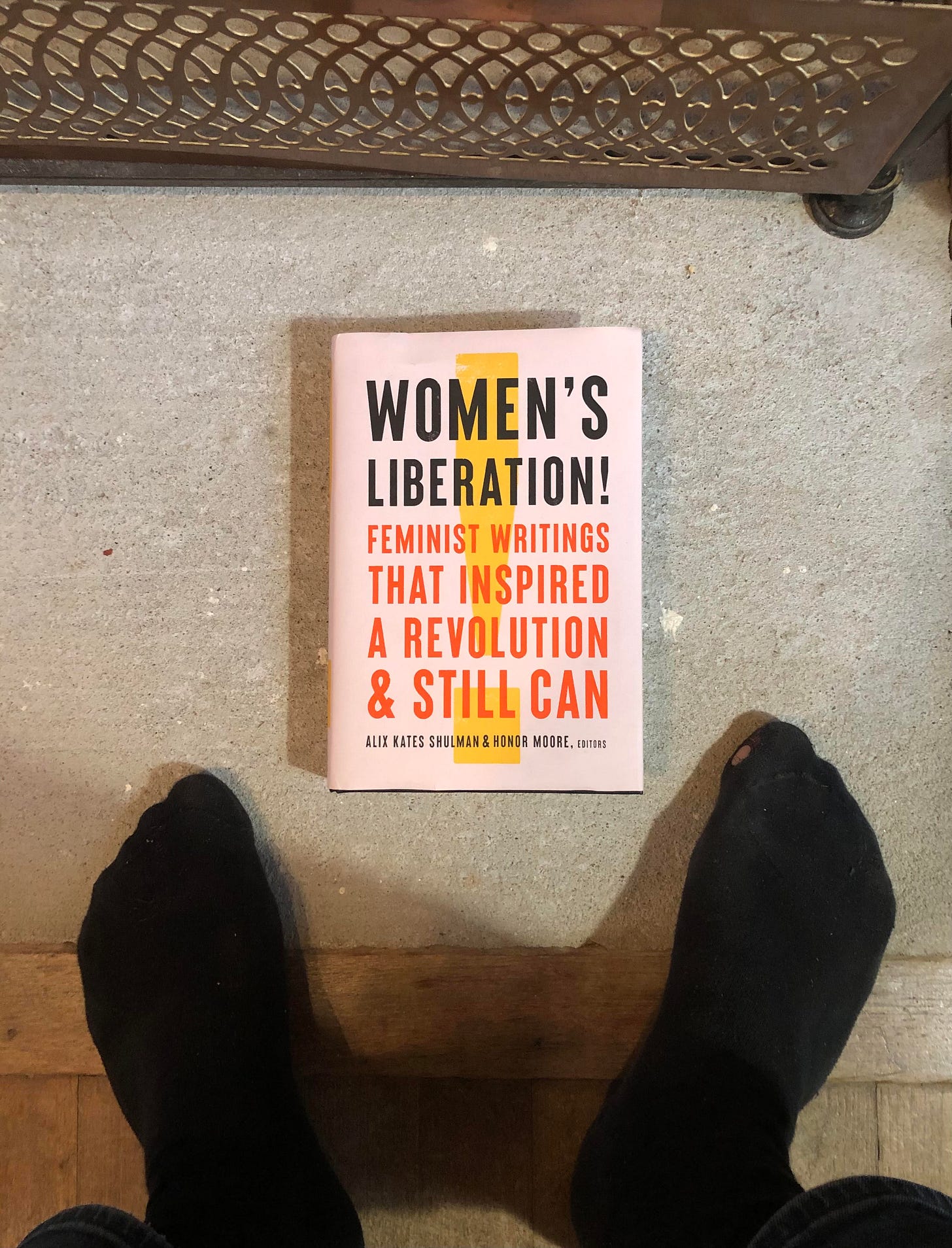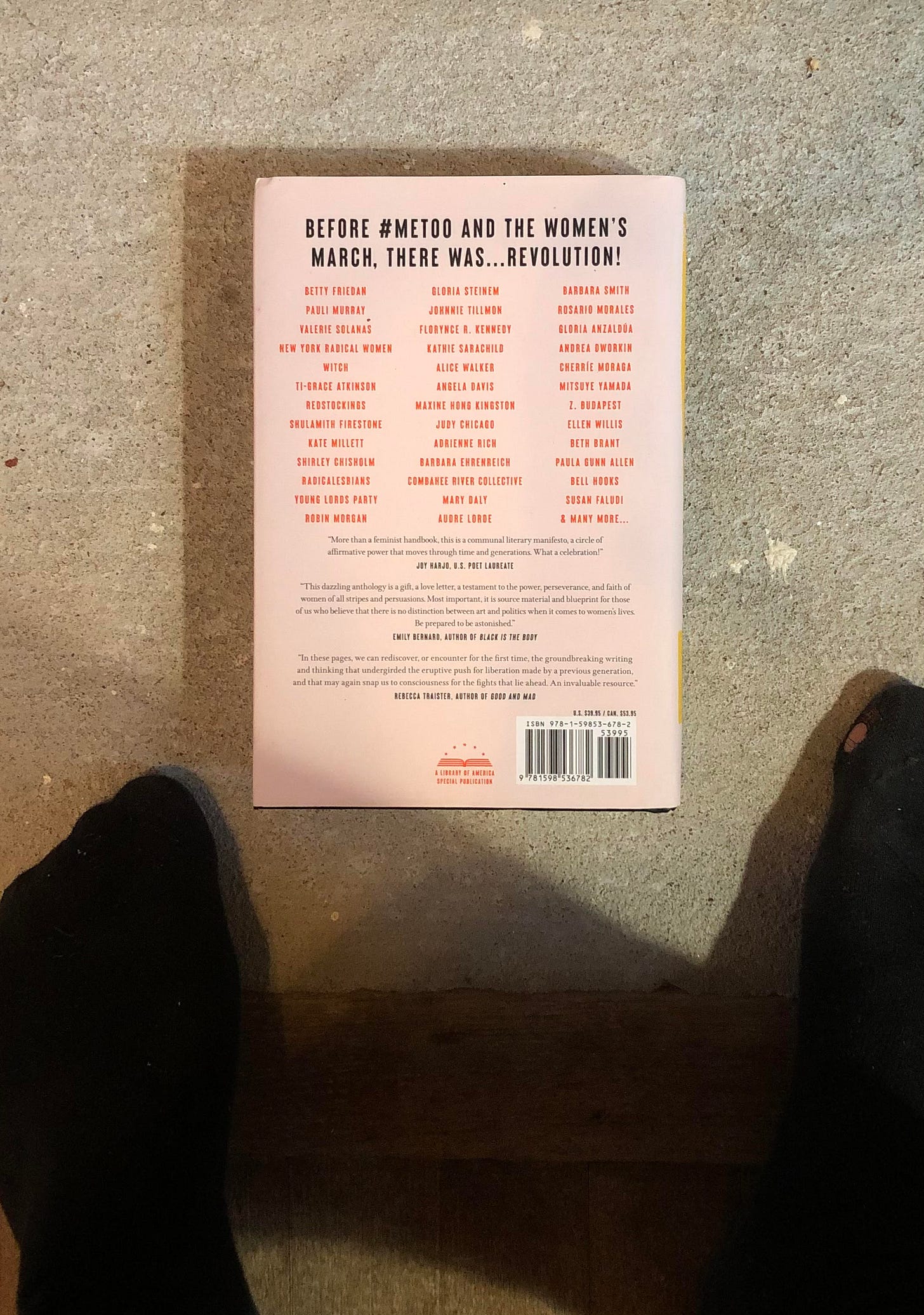Last week, while writing about my professor Anani Dzidzienyo, I thought about the revolution in the study of Afro-Latin America he helped bring about. And that got me thinking about another intellectual change that has come over the world since I was in college: regarding feminism.
I was raised in a feminist household. Both my parents were on the left end of the spectrum — though they would hardly be considered radical since the spectrum was, after all, bourgeois Houston. On a basic level, they were committed to equality between the sexes. And my sister and I were raised to believe that there was nothing I should be able to do that she couldn’t. We called this belief in equality feminism.
When I got to Brown University in 1994, I was astonished to discover that few people liked the word. Astonished, because Brown was famous as one of the most left-wing campuses in America. There was an assumption that kids would emerge with at the very least a pierced nose. I only remember one Republican student.
Yet it was very common for people—especially women—to preface discussions of gender by saying: I’m not a feminist, but …
To a lot of people, the word sounded obnoxious. There was a stench of man-hating. A whiff of burning bras.
Twenty-five years later, everyone’s a feminist. Ivanka’s launching a new line of accessibly priced handbags made in a sweatshop by enslaved children because she’s a feminist. Kellyanne’s up on the TV daring you to say she’s lying because she’s a feminist and she’s not going to let some man tell her what to think. Neera’s cracking open that second bottle of pinot grigio and defaming someone on Twitter because she’s a feminist and her opinions are most definitely her own.
The word has started to slide into meaninglessness.
Enter, stage left, on a horse, Honor Moore.
I met Honor about a decade ago at a party in New York. I’m a fake-sociable person. This means that though I think I like social events, I am always amazed, truly amazed, to re-learn that I don’t. My ideal occasion is a dinner with six people, eight max. I’m not so great at “mingling” with a crowd, when my instinct is to do is find one or two people and talk to them the whole night. This has gotten me into plenty of bad situations. If I start talking to the wrong person, I am usually too awkward to escape.
That night, I started talking to Honor. I don’t remember how it got started. But I remembered her book The Bishop’s Daughter, about her father, Paul Moore. He was a son of the WASP aristocracy who became the Episcopal Bishop of New York, a renowned social justice activist, a father of nine—and, as it turned out, was secretly gay. It was a book that got a lot of attention when it came out. I hadn’t read it, but I remembered reading about it.
Honor and I talked and talked and talked. I told her about my book on Susan Sontag. She told me she had known Sontag at the end of her life, and she told me she was working on a book about her mother, a remarkable woman who had renounced what would now be called “privilege” in order to live a life devoted to the service of others. Honor’s book was going to be about her, but also about their generations’ contrasting views of how a woman should be.
We talked and talked and talked—and are still talking, and one of the things that we ended up talking about the most was feminism. When you write about women’s lives as I have (and she has), this question becomes intriguing, because the framework in which women’s lives are lived has changed so drastically over the last century that it often becomes hard to imagine the social, political, artistic, or mental world that our mothers and grandmothers inhabited.
Honor has an incredible knowledge and understanding of what feminism is that I have relied on time and time again when I was seeking to understand some aspect of the women’s lives I have been writing about. I met her after I finished my biography of Clarice Lispector, Why This World, and right when I thought I had said everything I had to say about Clarice, Honor pointed out something new, which was that Clarice might have been the first Western woman to have written about all the stages of a woman’s life. She made me appreciate how rare Clarice’s achievement was, something we can lose sight of in an age when a woman writer seems so unexceptional. Even in Honor’s own generation, this was unusual.
I didn’t claim writing until I was in my twenties and Second Wave feminism arrived to tell me a woman could be a writer – strange I know, but there were so few contemporary American women writers then, and the prominent were often suicides (Sylvia Plath, Anne Sexton) or objects of ridicule that I couldn’t yet identify as objects of envy – (Lillian Hellman).
This conversation became the basis of my introduction to The Complete Stories, which I published in 2015. This is what I wrote then:
This is a record of a woman’s entire life, written over a woman’s entire life. As such, it seems to be the first such total record written in any country. This sweeping claim requires qualifications. A wife and a mother; a bourgeois, Western, heterosexual woman’s life. A woman who was not interrupted: a woman who did not start writing late, or stop for marriage or children, or succumb to drugs or suicide. A woman who, like so many male writers, began in her teens and carried on to the end. A woman who, in demographic respects, was exactly like most of her readers.
Their story had only been written in part. Before Clarice, a woman who wrote throughout her life—about that life—was so rare as to be previously unheard-of. The claim seems extravagant, but I have not identified any predecessors.
That essay was dedicated to Honor Moore.
So what is feminism, as I’ve come to think about it after all these conversations? Well, it’s not a thing. It’s a tradition—an intellectual tradition. And what’s an intellectual tradition? If I had to define it, I would say: the history of the responses to a single question.
So if you talk about the American political tradition, you might say that it is the history of the responses to the question:
What is the nature of the republic established by the Constitution of 1789?
Or if you wanted to define the Christian tradition, you could say it’s the history of the responses to the question:
What is the nature of Jesus as recorded in the Gospels?
Two things stand out in these examples. First, they are debates around texts. Second, the questions they answer are extremely simple in appearance but give rise to extremely conflicting responses. So what is the extremely simple question at the center of the feminist intellectual tradition? Maybe it’s something like this:
How can women achieve equality to men?
Easy to ask. Not so easy to answer. But the nature of an intellectual tradition is that it doesn’t have a final answer; it doesn’t want a final answer. Feminists (like Christians or Americans) can disagree about just about everything, but they can be considered part of the tradition if they are in conversation with the question, and with the canon of writings that have shaped the debate.
Feminism doesn’t have a New Testament or a Constitution. There’s no single central text. What it has instead is a group of writings or writers whose responses to the question have shaped the debate. The feminist tradition is made up of these texts and the responses to them. But there are a lot of them, and the writers are often in sharp disagreement—scratch that.
They often fucking hate each other.
Their disagreements can be bafflingly rococo and reading about them can feel like reading about the passionate schism within the Whig Party in response to the candidacy of Millard Fillmore. You need a guide—or I did, at least. I have written about women intellectuals, and to try to understand the shape of their lives, I needed to come to terms with that tradition.
So I could not be more thrilled, truly, deeply thrilled, to see that no one less than Honor Moore—the same Virgil who, for all these years, has been leading my Dante through the feminist inferno—has just published a sensational book that will make her knowledge of this subject available to anyone who wants it. It’s called Women’s Liberation: Feminist Writings That Inspired a Revolution & Still Can, and it’s just come out from the Library of America.
(Yes, I know my socks have holes in them. It’s Year 2 of the pandemic. Someday we’ll look back and remember what our clothes and hair looked like at this point.)
This book is an essential guide to what is now called Second-Wave Feminism. It’s a guide to the intellectual tradition. It includes lots of widely-read texts, but it also places them in conversation with a lot of texts that I think only people with a specialized knowledge of this subject will have.
If you read my last post, you know that I venerate the great bibliographers, that odd race of human who knows what’s in every book in the library. For me, for Latin America and Africa, Anani was that person. For feminism, it’s Honor.
It’s incredibly lucky that she is downloading her brain from the cloud. I’ve so often felt selfish having her on speed-dial (if that even exists anymore), for all my endless questions about these subjects. And I feel jubilant that this book is now available for anyone who contends with these questions—which, let’s face it, should be everyone. It’s a contribution to knowledge and activism. But it’s also hugely fun to read. It even (I know this is optimistic but allow me, in these dark times, to hope) makes me hope that the word feminist—so abused by its haters, so cynically overused—might get its real meaning back again.
One more thing.
There have been so many tragedies in the last year that anything short of Mass Death seems not quite to deserve the name. But I want to mention something that was very sad for me.
Remember the book Honor was working on about her mother? It’s called Our Revolution: A Mother and Daughter at Midcentury.
It came out last March, a year ago, and it was instantly greeted with a fabulous review in The New York Times. It couldn’t have been off to a better start. But then, that same day, our thank-God-former president went on an insane televised rant, crashed the stock market, closed the borders, and generally made it impossible for anything that wasn’t complete civilizational meltdown to get any space in the media. Honor’s subtle and elegant book—like so, so many others—didn’t stand a chance.
But it’s now out in paperback. Give it a chance, will you?
I want to thank my friends Luiz and Flavio for pointing out that the horse I said had been elected to São Paulo city council in the 1970s was in fact a rhinoceros who was a write-in candidate in 1959. His name was Cacareco, and he inspired a song with the immortal refrain
Ca-ca-ca-ca-re-co
Cacareco, cacareco é o maior
Ca-ca-ca-ca-re-co
Cacareco de ninguém tem dó
His skull is preserved at the São Paulo zoo.
I want to send my most heartfelt thanks to everyone who wrote about my column last week. I had no idea how much I needed that! Though not really one for parties, I do miss talking to people; long for it. And I long to write things that might not take seven years to write and that will get people talking — or at least talking to me.
I don’t know what form this Substack is ultimately going to take, but I plan to write once a week. They used to say that “Freedom Isn’t Free.” This newsletter, however, is. At least for now. I feel a bit presumptuous asking people to pay after only two posts, but if you feel like supporting me ($7 a month or $70 a year) and making it possible for me to keep doing this, I’m going to put an option here.
And if you want to help spread the word, I would appreciate that too.
And—since I’m now getting the hang of this buttons thing—please leave me a comment.






Thank you, Benjamin Moser for this excellent essay on feminism and especially on Honor Moore‘s contributions to the field. I’d like to join you in recommending her compelling memoir, OUR REVOLUTION, a book that looks at a period in American history through the lens of a personal relationship, in this case a mother and daughter.
What a brilliant essay about a doubly-brilliant woman (don't feel guilty about taking her time, she is so generous with it, Honor seems to have twice as much of it as anybody else to share her ideas and support for others). I first knew her when we were both very young at the Berkshire Theater Festival and she was much more woke than anybody else at the time- or maybe even since then. She's certainly been more consistently aware and articulate about the whole historical arc of being female than most anyone - except her closest intellectual associates. Your essay (and darling holey socks photos) are such a fine reminder that being An Intellectual is honorable. Thanks for celebrating Honor- and showing appreciation for people who share ideas and their intellectual energy throughout their entire lives. Too late for most of us to aspire to (our lives being on the other side of the hill) but maybe some up-and-coming Amanda Gorman followers can learn from Honor's example - and yours.